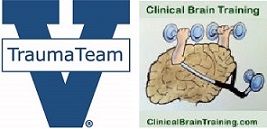Hope you all found that at least mildly useful. It has always frustrated me that we conclude we cant teach someone how to do something very complex, when we use the same teaching methods that haven’t worked in the past (have them read and then give them a multiple choice test). Or we have them watch others do it and expect by watching 10 people do something 20 different ways, they will somehow absorb the right way.
We need to “harden” as Nate Fick would say (look him up on Wiki) against error. The way to do that is to make absolutely sure they have internalized the process by teaching them, then coaching them, then holding them to a higher standard the next time, then coaching and teaching them again, and then instilling in them a belief that they will never know everything they need to know. The final step is most important, because I feel a sense of “fear” that you will be caught in a situation that you will not be able to handle spurs people to keep constantly alert, and will make them push themselves to get more competent with more complex situations.
Is their research and science to help us? Not really. There is some data to show that adult learners need active learning, where they go out and find answers for themselves, and participate actively in the learning process. But there is very little research in medical care to show what actually creates solid mental processes and what does not. What is pretty well accepted is that those people that want to constantly get better usually do.
In conclusion, I think we need to embed a solid foundation for emergency care in the hospital and pre-hospital. This should include what is generally considered the safest and most effective way to handle the situation. Once you have a curriculum to teach, you should make novices learn the core principles, and make certain you explain the rationale for those principles (wrote memorization without understanding is a recipe for fragile competence, its easy to smash it when things get hairy). But then we need to make sure they are completely competent with each chuck of the evolution (primary survey chunk, secondary survey chunk, initial intervention chunk, etc.) and then after they know those cold, give them the tools they needs to connect the chunks. Sometimes these are little heuristics they can come up with, sometimes these are hints that you will give them. I believe if we teach these life saving complex tasks that way, and continually test them with more and more complex simulations (either cognitive or high-fidelity) we will have better performance.



 Subscribe in iTunes
Subscribe in iTunes